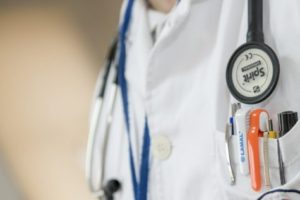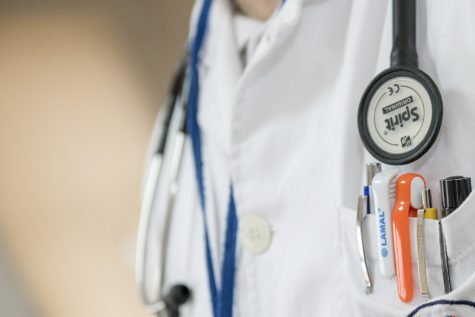ROCHESTER, Minn. — When it comes to treating a serious illness, two brains are better than one. A new study finds that nearly 9 in 10 people who go for a second opinion after seeing a doctor are likely to leave with a refined or new diagnosis from what they were first told.
Researchers at the Mayo Clinic examined 286 patient records of individuals who had decided to consult a second opinion, hoping to determine whether being referred to a second specialist impacted one’s likelihood of receiving an accurate diagnosis.
The study, conducted using records of patients referred to the Mayo Clinic’s General Internal Medicine Division over a two-year period, ultimately found that when consulting a second opinion, the physician only confirmed the original diagnosis 12 percent of the time.

Among those with updated diagnoses, 66% received a refined or redefined diagnosis, while 21% were diagnosed with something completely different than what their first physician concluded.
“Effective and efficient treatment depends on the right diagnosis,” says lead researcher Dr. James Naessens in a Mayo news release. “Knowing that more than 1 out of every 5 referral patients may be completely [and] incorrectly diagnosed is troubling ─ not only because of the safety risks for these patients prior to correct diagnosis, but also because of the patients we assume are not being referred at all.”
Considering how health insurance companies often limit the ability of patients to visit multiple specialists, this figure could be seen as troubling.
Combine this with the fact that primary care physicians are often overly-confident in their diagnoses, not to mention how a high number of patients feel amiss about questioning their diagnoses, a massive issue is revealed.
“Referrals to advanced specialty care for undifferentiated problems are an essential component of patient care,” says Naessens. “Without adequate resources to handle undifferentiated diagnoses, a potential unintended consequence is misdiagnosis, resulting in treatment delays and complications, and leading to more costly treatments.”
The researchers acknowledged that receiving a completely different diagnosis could result in a patient facing otherwise unexpected expenditures, “but the alternative could be deadly.”
According to the release, The National Academy of Medicine cites diagnostic error as an important component in determining the quality of health care in its new publication, Improving Diagnosis in Health Care:
Despite the pervasiveness of diagnostic errors and the risk for serious patient harm, diagnostic errors have been largely unappreciated within the quality and patient safety movements in health care. Without a dedicated focus on improving diagnosis, these errors will likely worsen as the delivery of health care and the diagnostic process continue to increase in complexity.
The study was published in the Journal of Evaluation in Clinical Practice.

Yeah,I was listening to the radio and had on the Peoples Pharmacy.The guy went to his doctor friend for blood work.He told his doctor friend do me a favor, my son requested that you take another blood sample and send it out to another lab.The doctor did,and when the results came back he was amazed,and he thought is was from two different people.The blood work results were way different when compared.!!!!! Now what does that tell you.!!!
Remember when the doctors go on strike,the death rate goes way down..!!
According to the numbers presented only 12% of these second opinions actually produced a “different” diagnosis. The rest appear to have refined or confirmed the original diagnosis. Research confirms that research can confirm whatever it sets out to confirm and that headlines can be written accordingly.
Eventually, human diagnoses will be replaced with AI diagnoses. When that happens, there will be much less chance of differences between first and second opinions. However, whether the results will be better than what we have currently is anybody’s guess, since AI is only as good as its programming allows it to be.
Just when you thought things couldn’t get any worse.
Think about the VA when you consider outcomes like this.
Opinions are like Obama dolls. Everybody has one, and they all stink.
My wife has a “gi” problem and we have gone to 4 GI Dr. and they can not figure it out. We have had a consult to Mayo for 3 years, TRY TO GET IN, JUST TRY. GOOD LUCK!!
why the [and] here?
” may be completely [and] incorrectly diagnosed ”
‘completely incorrectly’ seems fine on its own. otherwise aren’t you implying ‘completely diagnosed’? that seems wrong.
Fully agree. Get a 2nd opinion on a general principle especially on major health issues, infections, surgeries, etc. Amazing what the prognosis is from 2 Doctors on the same problem.
Also
do some of your own research before seeing the Doctor so you are familiar with the problem and can ask questions.
Medicine, the term they like to use which is correct that this Study left out is all MD’s are “Practicing Medicine”.
They use a book of Symptoms to tell them what Drug you need. Now if they are having a difficult time they will place a call to other Dr’s to discuss your issue.
All the while your setting waiting for the Dr to return and most of the time with the wrong Prescription he has for you.
A good rule of thumb is, when you tell them your Symptoms and their eyes glaze over it’s a very good sign to get up and leave, find another Dr…
Remember Dr’s are “Practicing Medicine” They are not experts..!!!
“That is a second opinion. I changed my mind.” “I don’t know what you have, which is why I am prescribing a ‘Cure-All'”.
It seems rather obvious that there are at least two (and likely more) reasons for seeking a “second opinion”, and those differing reasons are why the 88% change in diagnosis is TOTALLY, AND COMPLETELY, INSIGNIFICANT.
1. The patient’s ailment isn’t responding to treatment.
2. Not all specialists are equally skilled.
Who do I trust more, politicians, lawyers, or doctors? Boy it’s a hard call.
The Lubavitcher Rebbe advised people for years to ask two doctors and that one of them should be a friend.
U no when ovamitcare kicked n our old timey docs retired and the mussy & indian docs moved n- a lady i no jobs is HR- job is to verify docs r docs- now keep n mind they hav to work n small town 4 two yrs b4 applying to a big hosp- 40% of those docs R NOT DOCS! They been practicing n a small town for two yrs- how many old people hav they killed or small children etc? I think this is a REAL SCAREY STATISTIC!
Then look how many people r diagnosed w/cancer! Do they really hav cancer? Lots of money in treatg cancer – lots of money in the meds too! In essence u r told u hav cancer by a foreign doctor who then gives u chemo which kills good & bad cells n ur body- beginning to think the foreign docs r killing us on purpose! Had to compile a list of my sisters docs involved w/her cancer – they all had the same mailing address which i found to b weird! They say: let me get w/my team- their teams consist of other mussy/indian docs- JUST SAYN: TOO WEIRD!!!Something Americans really need to START THINKING ABOUT!
I’m surprised this eighty-eight percent figure for misdiagnoses isn’t even higher. The type of diseases we are diagnosed with depends on what kind of equipment a particular doctor owns.
When the Wall Street Journal replaces the medical journals, we shouldn’t be surprised at what happens.
Literaly everytime i go to a specialist my diagnosis is always different. My diagnosis always seems to change based on the speciality of the doctor. As an example, I wanted to prove that doctors were BS. So i decided to go to an “Ear Nose and Throat” doctor. Without having any throat problems i anticipated that he would say i have Gastrointestinal Reflux. Thats exactly what happened! He wrote me a script for Omeprazol. What a joke.
Some of these doctors , just because they went to school , doesn’t mean they know what there doing .
Pretty sure this applies to tax preparation types also…
For almost any set of symptoms there are numerous health problems that fit the bill. Finding precisely what is wrong often requires time. A doctor may say “I think it is probably this, and if it is what I think, then this will help you, if it’s not, then come back and we’ll do more intensive tests”. The patient may not like this, so they go to another doctor. After conversing with the patient, the second doctor realizes that the patient will not accept the same diagnosis as the last doctor, and so the second doctor proposes another possible health problem that could match their symptoms.
In that case, it’s not so much of a disagreement between doctors as it is the patient steering the second doctor in a different direction from the first.